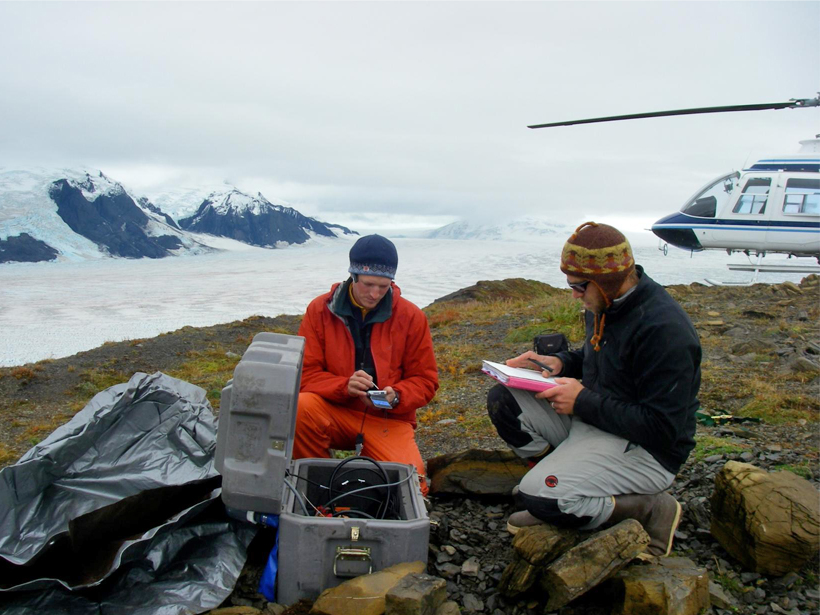The United States must reevaluate its requirements for researchers to win and keep federal funding, says a new report released Tuesday by the National Academies of Sciences, Engineering, and Medicine.
The report, titled “Optimizing the Nation’s Investment in Academic Research: A New Regulatory Framework for the 21st Century: Part 1,” addresses concerns among the nation’s scientists that cumbersome regulations for acquiring federal funding take too much time away from the research itself as well as from teaching and from interacting with the public with regard to science.
“Increasing federal regulations have hindered the output of the remarkable research enterprise that rose from government-academic partnership.”
Although the report stresses that government regulations have improved safety at scientific institutions and made institutions more financially accountable, “increasing federal regulations have hindered the output of the remarkable research enterprise that rose from government-academic partnership,” said Larry Faulkner, president emeritus of the University of Texas at Austin. He chaired the committee that conducted the study, which included input from federal agency representatives, scientists, clinicians, ethicists, public policy experts, and officials from universities that have received federal funding.
“In effect, we may jeopardize our nation’s leadership in science, technology, and the social and behavioral sciences, all of which contribute to the nation’s security, health, education, and well-being,” Faulkner continued.
Expanding Regulations
“In a general sense, I find it kind of a breath of fresh air,” John Geissman, head of the Department of Geosciences at the University of Texas at Dallas, told Eos. Geissman, who is editor in chief of Tectonics, a journal of the American Geophysical Union, which also publishes Eos.org, views the new report as a well-deserved “recognition of the problem of far too much time being spent on a lot of bizarre rules and regulations that are associated with conducting federally sponsored research.”
For instance, Geissman said, researchers must reapply for National Science Foundation grants every 3 years, putting undue stress on scientists working on longer-term projects.
Regulations for federal funding have increased dramatically in recent decades, said Harriet Rabb, the committee’s vice chair and the vice president and general counsel for Rockefeller University in New York, N.Y. For example, in the 1990s, the government established about 1.5 new regulations every year. From 2003 to 2012, however, this number rose dramatically to 5.8 new regulations every year. Some of these regulations, Rabb said, can be traced back to a single isolated incident and not problematic trends. Besides tightening controls on spending and safety, funders have sought to combat scientific misconduct.
“Our committee found that this continuing growth of the federal regulatory system requirements diminishes the effectiveness of the nation’s investment in research,” Rabb said.
Analysis and Recommendations
The report addresses grant writing and reporting requirements of universities and federal agencies as well as agency policies and laws related to research funding.
“These expanding requirements are diverting investigators’ time away from research and education and directing it instead to administrative tasks that may be inconsistent, duplicative, or unclear.”
Among its main findings, the report concludes that continuing to expand regulations is harming rather than helping academic research by shifting researchers’ time from scientific endeavors to administrative tasks. Oftentimes, researchers apply for federal funding from multiple agencies, which can have redundant requirements, forcing researchers to redo the same work multiple times.
“These expanding requirements are diverting investigators’ time away from research and education and directing it instead to administrative tasks that may be inconsistent, duplicative, or unclear,” Rabb said.
Possible Solutions
The committee then laid out ways in which Congress, federal agencies, research institutions, and universities could relieve research funding applicants of excessive administrative burdens.
The report recommends extensive Congressional review of agency grant proposal forms and a one-size-fits-all conflict of interest policy for all agencies. It urges streamlining and coordination of regulations among federal agencies to dispel redundancies and save time. Additionally, the report calls on Congress to create an entirely new body, the Research Policy Board, tasked with guiding and coordinating how federally funded research is regulated. The report recommends that institutions and universities review their own internal policies, which tend to further encumber researchers’ bids for funding.
One recommendation about streamlining grant proposal processes by making them uniform across agencies and shortening their length particularly resonated with Geissman, who said it would be a “huge help.”
“No matter what is being attempted to be done,” he concluded, “it will be very, very useful overall.”
—JoAnna Wendel, Staff Writer
Correction, 8 October: An earlier version of this article previously stated that the proposed “Research Policy Board” would oversee the allotment of federal funds for research. Instead, the proposed body would oversee how federally funded research is regulated.
Citation: Wendel, J. (2015), National Academies report urges fewer regulations on federally funded research, Eos, 96, doi:10.1029/2015EO036273. Published on 24 September 2015.
Text © 2015. The authors. CC BY-NC 3.0
Except where otherwise noted, images are subject to copyright. Any reuse without express permission from the copyright owner is prohibited.

